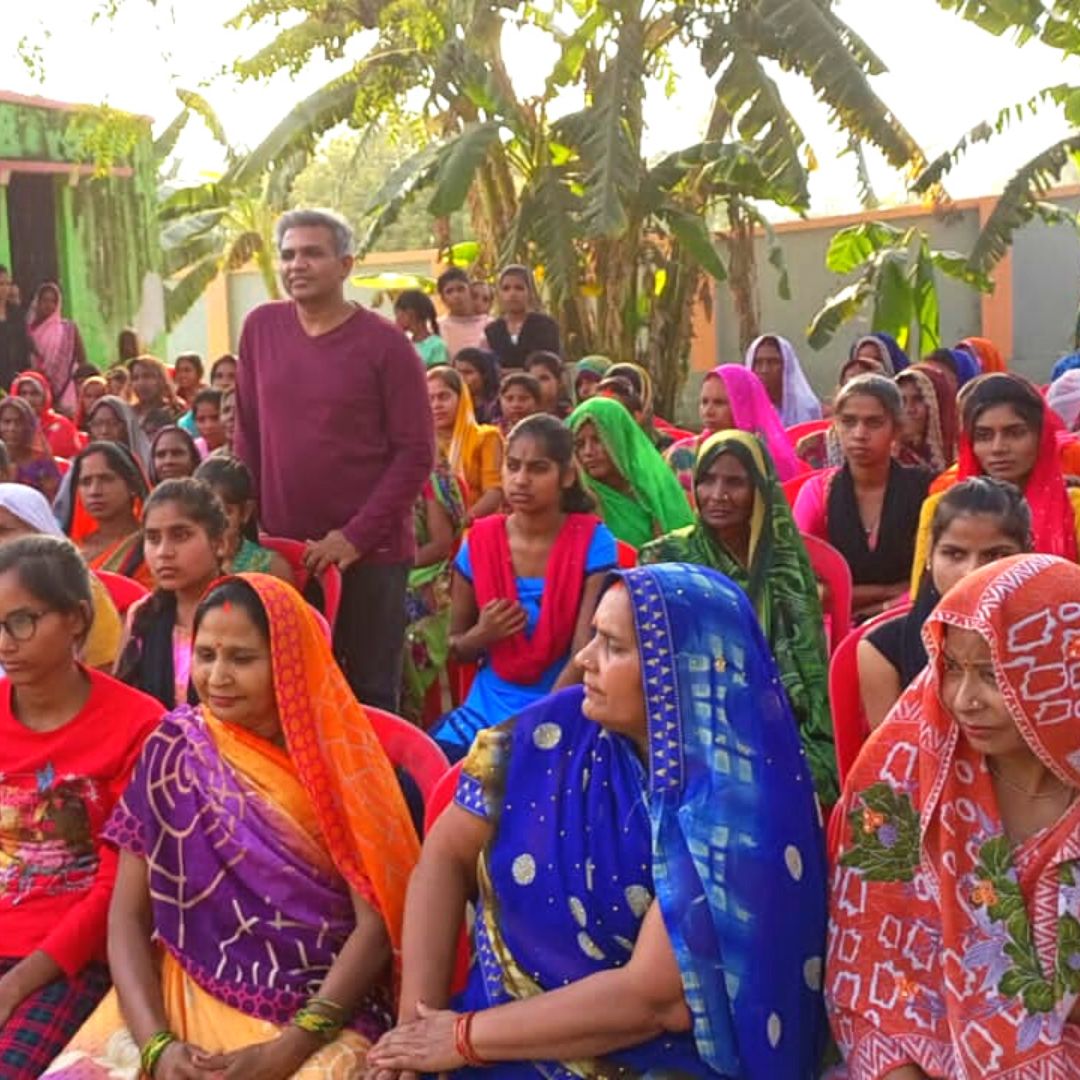
Image Credit- The Source
This Gram Pradhan From Haryana Abolished Usage Of Gendered & Sexist Slurs In His Village
Haryana, 3 July 2022 9:23 AM GMT
Editor : Shiva Chaudhary |
A post-graduate in Journalism and Mass Communication with relevant skills, specialising in content editing & writing. I believe in the precise dissemination of information based on facts to the public.
Creatives : Mrinalini Kaushik
She is a student of journalism, keen on learning new ways to unlearn, deconstructing news and life. Interested in exploring new media as medium is the message. Avid follower of sports and politics
In an exclusive interview with Sunil Jaglan, we explore the reasons behind the unique campaign, 'Gaali Bandh Ghar,' against misogynistic curse words which are prevalent in society.
After starting the campaign, 'Gaali Bandh Ghar', aiming to stop gendered and sexist slurs in India, Sunil Jaglan has expanded the reach and scope of his campaign through many endeavours.
The Logical Indian Crew interviewed Jaglan to learn more about the movement, which began in 2014 after he became the Gram Pradhan of his hometown, Bibipur, Haryana and how it has impacted society to date.
When did you realise the problem of sexism and gender discrimination in your surroundings?
I was working as a director at a college and pursuing a teaching job when I decided to return to my home village, Bibipur. I got married there and had a wonderful daughter who made me sensitive toward different cultural traditions and aspects that were gendered, while I had taken them for granted.
My sisters did all the housework. At festivals and weddings, there was differential treatment of men and women. It became very stark to me, especially during our daily routine.
I used to come across cases of female foeticides in my village. Therefore, I started routine observation of houses with pregnant women and began 'beti padhao' alongside 'beti bachao' in 2012, further adopted by Pranab Mukherjee at the government level, for which I was very grateful.
At the village level, we used to provide them with social security money, books, libraries, and computer centres for girl students.
How did the idea of a campaign against sexist and misogynist slurs originate?
I had the opportunity to become the Gram Pradhan of the Bibipur Panchayat in 2014. Panchayats usually resolve local and land ownership disputes. During a panchayat session, the discussion became very heated. Both parties lost their temper and started giving gaali to each other, which was derogatory towards women.
Even though there were women in the session, nobody blinked an eye. I felt it was wrong, and I immediately issued a notice and passed a resolution banning curse words from Panchayati sessions. This was the starting point for the initiative 'Gaali Bandh Ghar'.
During the Covid-19 pandemic, another incident cemented my commitment to the initiative. I was accompanying my daughters, one is ten years old, and the other is eight years old, to the park. They came to me after they finished playing and asked about the sexist slurs they heard being hurled in public. It opened my eyes to how normalised these curse words were in society. It didn't matter if they were spoken in public or even in front of so many children.
What has been the impact of 'Gaali Bandh Ghar'?
I wanted to start from my own house and village. I took a hyperlocal approach where I used to interrupt my friends, colleagues, or WhatsApp group members, correcting them to help unlearn these normalised habits of saying sexist slurs in every sentence.
At the macro level, I started taking gender sensitisation classes, where sometimes I'm also stopped in between sessions by school authorities saying this is uncomfortable for children to know.
We have conducted sessions in more than 500 schools, universities and colleges. Every month I visit 15 to 16 villages across Haryana, Madhya Pradesh, Uttar Pradesh, Uttarakhand etc., to create more awareness and impact.
Why do you think this problem persists after so many years of the campaign?
One of the most significant factors in contemporary times is the easy accessibility of web series, and YouTube shows where society is continuously influenced. We call this process 'dimaag ka bhojan'. Online shows, series, gaming and social media have helped naturalise sexist slurs across ages and genders. No comedy show is without these curses or double-meaning words demeaning women's body anatomy. If we trace these curse words' literal meaning, cursing someone for having sexual relations with their sisters or mothers is vulgar, disrespectful, and unacceptable.
We cannot normalise this behaviour. Even women don't understand that this is a problem and not their fault. They have imbibed patriarchal values and don't even realise that this sort of behaviour is not standard.
Thus, my vision is to create a safer world where all genders are on par. Making a better future for my daughters, they are my source of inspiration. I won't give up and keep organising more sessions and expanding my outreach for the campaign's effectiveness.
Also Read: Only 36% Gig Workers Are Financially Resilient In India: Report
 All section
All section














